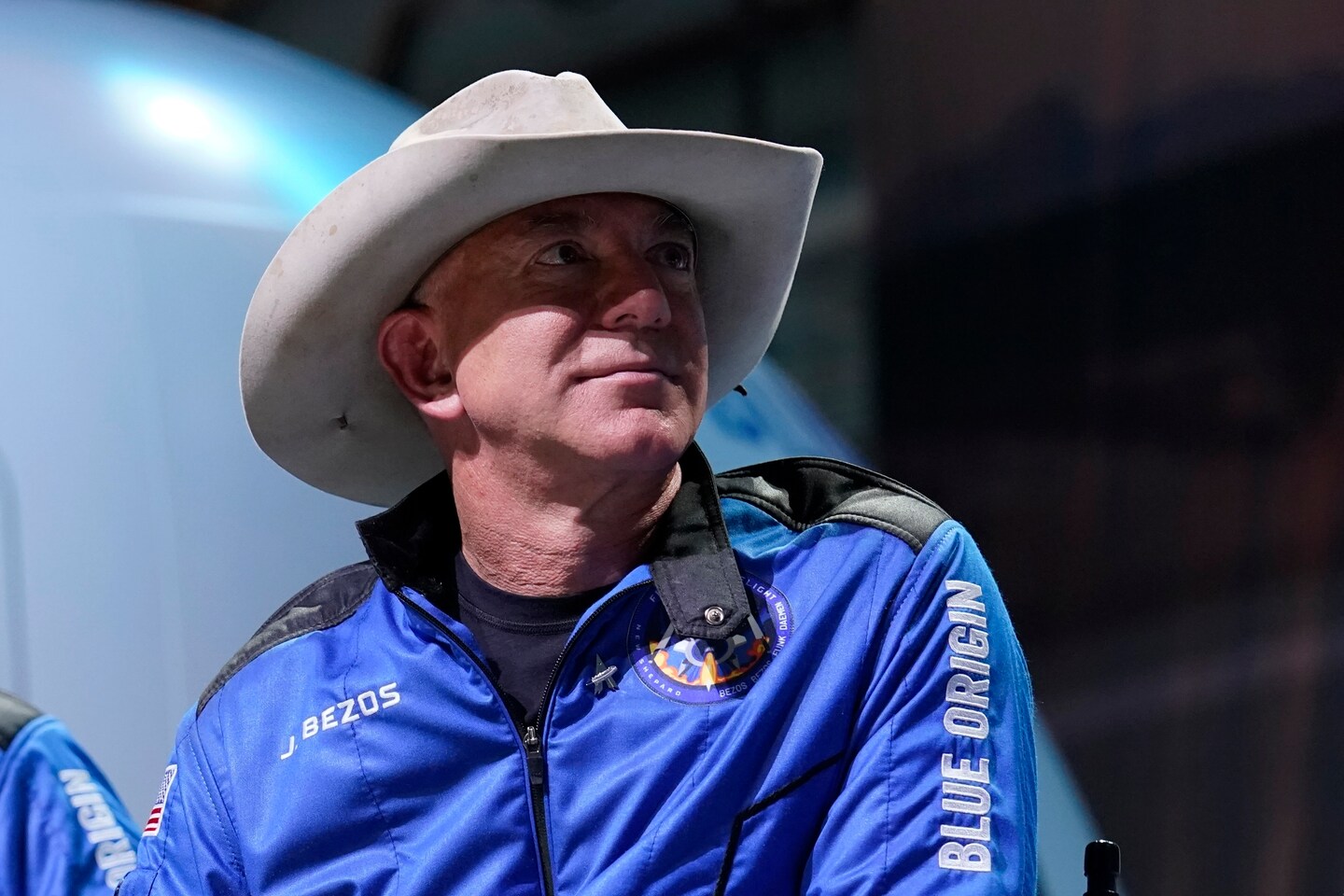
Blue Origin launches crewless New Shepard rocket in return to flight
- Science
- December 19, 2023
- No Comment
- 340
Bezos recently acknowledged the company’s woes and said he is now personally involved in a way he has not been when he was running Amazon. (Bezos owns The Washington Post; The Post’s interim CEO, Patty Stonesifer, is a member of Amazon’s board.)
“Blue Origin needs to be much faster, and it’s one of the reasons that I left my role as the CEO of Amazon a couple of years ago,” he said on Lex Fridman’s podcast. “Blue Origin needs me right now.”
His goal is to infuse his space company with “some energy, some sense of urgency. We need to move much faster, and we’re going to,” he said.
He added that, “I’m leading this directly. We’re going to become the world’s most decisive company, across any industry. … We’re going to get really good at taking appropriate technology risks and making those decisions quickly. Being bold on those things, and having the right culture that supports that. You need people to be ambitious, technically ambitious.”
Monday’s flight appeared to go well from start to finish. The booster lifted off successfully, propelling the spacecraft to an altitude of about 66 miles, where it experienced about three minutes in weightlessness before falling to Earth under parachutes. The booster flew back to Earth, touching down softly on its landing pad. Overall, Blue Origin has flown New Shepard to space 24 times, and has completed six missions with people on board.
In September, Bob Smith, Blue Origin’s CEO, announced he was resigning. Bezos replaced him with Dave Limp, a trusted confidante from Amazon, who oversaw several programs including Alexa, Kindle and the company’s growing Kuiper internet satellite network. Smith, who had been an executive at Honeywell Aerospace before coming to Blue, had been charged with transforming Blue from the research and development start-up it had been for years to a revenue generating venture with more formal business lines and processes.
The company grew tremendously under his tenure, opening offices in Huntsville, Ala., and building a sprawling manufacturing campus near Cape Canaveral in Florida. But Smith’s tenure was marked by turmoil that was detailed in a 2021 Washington Post report in which employees complained of a poor work environment. One said in a letter to Bezos, Smith and other top leaders that, “Our current culture is toxic to our success and many can see it spreading throughout the company.”
The problems at the spaceflight company were “systemic,” according to the letter, which was obtained by The Post and verified by two former employees familiar with the matter. “The loss of trust in Blue’s leadership is common,” the letter said.
That dysfunction prevented the company from “operational excellence,” a core tenant of Bezos’ business philosophy, current and former employees told The Post. After winning the lion’s share of a major contract to build a spacecraft to land NASA’s astronauts on the moon, for example, Blue ultimately lost the final round in 2021 to SpaceX. Blue’s bid came in at $6 billion; SpaceX bid $2.9 billion. The loss came as Bezos was focused on Amazon, which had become a lifeline for many during the covid-19 pandemic and facing huge demand across the country.
Since then, however, current and former employees at Blue Origin have told The Post, Bezos is much more engaged with Blue, which he has said “is the most important work I’m doing.” Since he stepped down as Amazon’s CEO in 2021, Blue has occupied a lot more of his time and attention, they said. His suborbital trip to space in July 2021 on New Shepard’s first human spaceflight mission also helped galvanize him.
Recently, the company has shown some signs of progress on its ambitions. After years of delays, Blue finally delivered BE-4 engines to the United Launch Alliance, the joint venture of Lockheed Martin and Boeing, which uses the engines to power its Vulcan rocket. The first flight of Vulcan is set for Jan. 8, a mission that is intended to send a robotic spacecraft developed by Astrobotic, a Pittsburgh company, to the surface of the moon as part of NASA’s Artemis program.
Blue Origin is also focused on developing the technologies to help NASA build an enduring presence on the moon. Earlier this year, it won a $34.7 million contract to build solar cells and transmission wire out of lunar regolith, the rocks and dirt on the moon. After losing on the initial contract, Blue also won a contract from NASA to build a lunar lander for the space agency to fly astronauts to and from the moon’s surface. Blue’s proposal is an ambitious one, and calls for a reusable spacecraft that would stay in lunar orbit and would refueled by a second spacecraft that would travel back and forth between Earth and the moon.
In addition to those projects, it’s working to develop a commercial space station, called Orbital Reef, that could serve as a replacement for the International Space Station. Blue also recently unveiled an in-space infrastructure program, known as Blue Ring, a spacecraft that would be able to fly between different orbits, including to the vicinity of the moon, using both chemical and electrical propulsion.
“It’s a little bit like Amazon Web Services but for space payloads that need to move about in Earth vicinity or lunar vicinity,” Bezos told Fridman.
But despite the company’s growth and its reach into different areas of the space industry, Blue Origin has yet to fly anything to Earth orbit. Bezos said that should change next year with the first flight of the company’s New Glenn rocket from the company’s launch site at Cape Canaveral. Originally scheduled to fly by 2020, New Glenn would have a very large faring, or nose cone, that would allow it to carry large payloads to orbit, as well a reusable first stage that would return to Earth and land like SpaceX’s Falcon 9 rocket.
“I’m very optimistic that the first launch of new Glenn will be in 2024,” Bezos told Fridman. Asked if he was nervous about the launch, he said, “Are you kidding? I’m extremely nervous. … A first launch — to have no nervousness about that would be some sign of derangement, I think.”
Another flight of New Shepard should come before too long, Erika Wagner, Blue’s senior director for emerging space markets, said during the company’s broadcast of Tuesday’s flight. And this time it will have people on board.
“Following a thorough review of today’s mission, we look forward to flying our next crewed flight soon,” she said.
#Blue #Origin #launches #crewless #Shepard #rocket #return #flight








